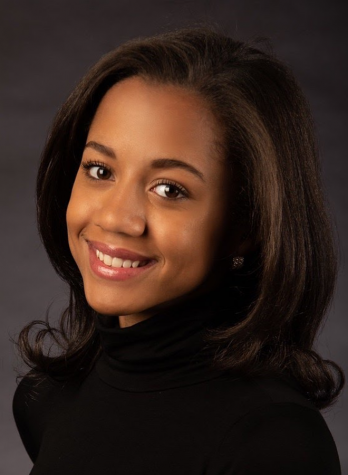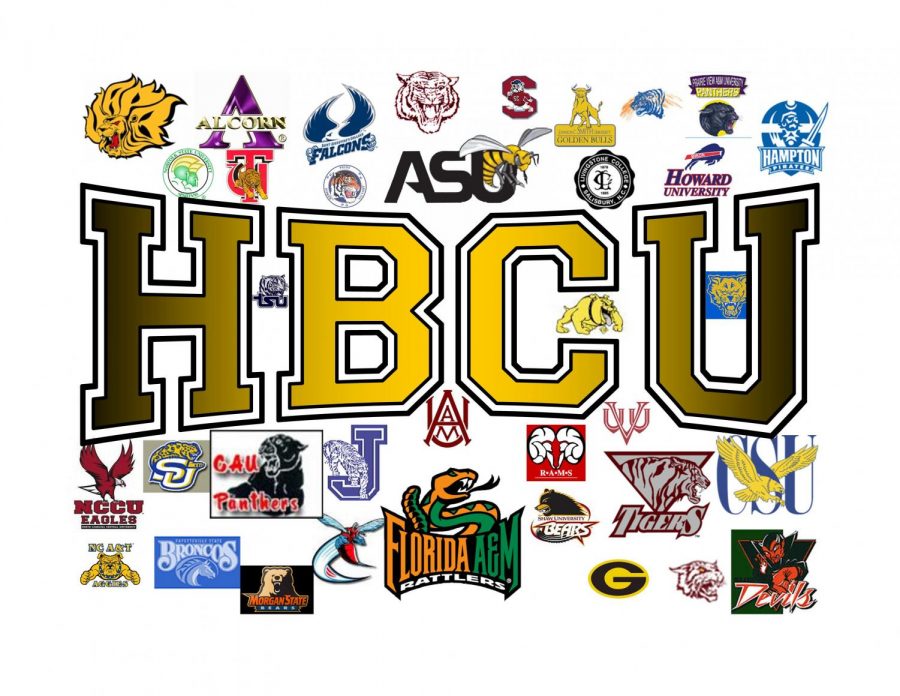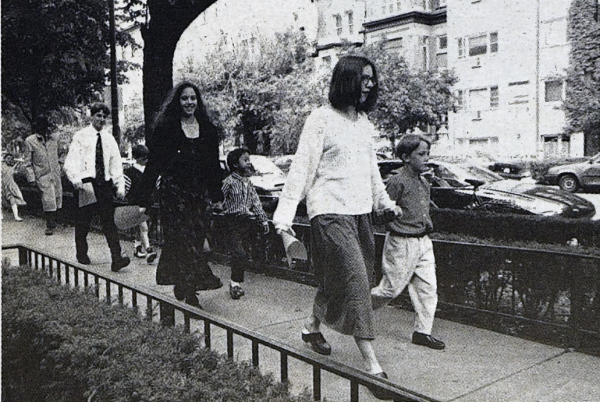HBCU Graduates make History in Recent Weeks
More than 100 Historically Black Colleges and Universities—better known as HBCUs—span the nation, each with a distinct set of principles and achievements. Most were built in the aftermath of the Civil War with intentions of providing education to newly freed slaves, and their numbers have been multiplying for a century and a half. In recent months, certain HBCU graduates have garnered national recognition and, in doing so, have also shed new light on their alma maters. Such a spotlight, while positive, has also raised the significant questions of why these institutions have been both hidden from the public eye, as well as missing from the curriculums and college counseling offices of many predominantly white institutions throughout the country.
November 2020 marked the election of America’s 46th president— an event wrought with fear of the unknown. After several grueling days, it was announced that Joe Biden and Kamala Harris were to be inaugurated as the new President and Vice President of the United States. Among the many historical markers of this election is Harris’s position as the first woman of color to be elected as Vice President.
Kamala Harris graduated from Howard University, a renowned HBCU, in 1986. Decades later, she continues to call the institution “one of the most important aspects of my life.” She served as the District Attorney in San Francisco from 2004-2011, Attorney General of California from 2011-17, and a U.S. Senator from California since 2017, and today makes history as Vice Commander-in-Chief-Elect. Throughout her career, she has been a strong advocate against injustice. Harris famously said, “When you attend an HBCU, there’s nothing you can’t do.”
Also in the realm of politics, Raphael Warnock was elected as U.S. Senator for Georgia, along with fellow Democrat Jon Ossof. Warnock, a 1991 graduate of Morehouse College, will make history as Georgia’s first black U.S. senator. The first in his family to graduate college, Warnock has consistently attributed his professional successes to the education he received at Morehouse. Currently, Black institutions celebrate him in hopes of reversing misconceptions that surround the quality of social mobility and education at HBCUs.
Some of the most notable political efforts in recent weeks are on behalf of Stacey Abrams. For the past 10 years, she has worked tirelessly behind the scenes to flip Georgia’s Senate seats. After graduating from Spelman College—the number-one HBCU in the nation, according to Niche—in 1995, Abrams dedicated her life to both increasing voting rights and transforming her state’s electorate. Not only did her endeavors seal Biden and Harris’s presidential victory, but they did the same for Warnock and Ossoff in the Senate.
“I am so impressed with Stacey Abrams’ ability and willingness to turn a devastating loss in the gubernatorial election into an impressive ground game to register voters and expand what American democracy looks like,” English teacher and DEI Curriculum Coordinator Brandon Woods said.
Similarly, junior Elise Maajid said, “Abrams’ efforts mean a lot because she gives me hope that I can one day be as successful as her, despite my people having gone through so much.” Such success, while overshadowed for nearly a decade, has sparked a new interest in HBCUs and their esteemed graduates.
“I cannot help but think about the impact these figures have had on our politics, and how their political sensibilities and values were, in part, developed at their respective HBCUs,” Mr. Woods said. “I am particularly proud of and awed by the women who face intersectional oppressions but have not let that stop them from accomplishing their goals.”
Eleannor Maajid, Upper School Director of Diversity, Equity and Inclusion, said, “It shows the amazing strength of these trailblazers that they are willing to fight for change in our country and work to make a difference despite all obstacles they have to overcome.”
There is no denying the stigma associated with HBCUs or the pressure placed on alums to defy the stereotypes. But times are certainly changing. Senior Zemzem Mohammed commented, “Everyone who refuses to acknowledge the importance of HBCUs must feel silly after realizing that their Vice President-elect attended one.”
Junior Kelvin Kissi and Mr. Woods spoke to the invalidity of such negative opinions against these schools. “MLK and Thurgood Marshall are both graduates of HBCUs and have made great progress for African Americans,” Kelvin said. “They have both contributed so much to US history that the argument that HBCU graduates contribute nothing is simply fallacious.”
Similarly, Mr. Woods noted, “Even a cursory investigation will evidence the incredible impact these schools and their alums have had on society. Part of me is cautious answering this question because it feels like yet another time when Black people have to explain and defend Black excellence.”
In a direct response to those who claim that HBCU graduates have not made a significant impact on the nation, Ms. Maajid said, “I would tell them to check their facts. There are many HBCU graduates who have made a significant impact on our nation over so many decades. Here are who come to mind, who have made an impact: Booker T. Washington, Thurgood Marshall, Dr. Martin Luther King, Jr., W.E.B. Du Bois, Ralph Abernathy, Marian Wright Edelman, Katherine Johnson, Oprah Winfrey, Toni Morrison … the list goes on and on. These individuals and countless others have made a huge impact on our nation in multiple ways.”
Latin has made consistent efforts to address various milestones within the African-American community, and those efforts are not lost on students or faculty. “I was impressed and buoyed by how much of the discussions around recent political and social events included references to the elections of Raphael Warnock and Kamala Harris, as well as the unbelievable work of Stacey Abrams,” Mr. Woods said. “People are definitely aware of these successes and realize how they fit into our current moment.”
Even given all of the recent HBCU awareness, there is always room for improvement. Now more than ever, a responsibility is placed on schools throughout the nation to advocate for HBCUs, especially given their potential to become lost among a sea of predominantly white institutions. Kelvin said, “In the future, I hope to see schoolwide discussions on topics of African-American and even POC successes and their significance, like the discussions we held after the insurgency at the Capitol, as I believe both events are equally significant to our history.”
Zemzem added, “I want Latin to foster an environment that is willing to grow and change. I want them to be proactive in the teachers they chose and the courses they put out, because faculty members are role models.”
Perhaps the greatest takeaway from the recent national triumphs of HBCU graduates is that such institutions were and are necessary to this country’s path forward. Kamala Harris, Raphael Warnock, and Stacey Abrams are all living testaments to the immense good that can come out of historically black colleges and universities, so long as their histories are not tarnished or lost. “When African-Americans were barred entry to other institutions of higher learning, HBCUs offered them a rich and fecund environment to hone their skills, to determine how best to use their talents to improve the world, and to help America achieve its aspirations for a fully democratic society,” Mr. Woods said. “Our nation would be far poorer politically, culturally, and socially without the contributions of alumni of HBCUs.”

McKenna Fellows (‘22) is a senior at Latin, and is elated to serve as one of this year’s Editors-in-Chief. She is an avid reader and writer, and in...





















































Xavier Espejo Vadillo • Jan 15, 2021 at 2:07 pm
McKenna:
Gracias por escribir este artículo. He aprendido un montón de cosas que no sabía. Es triste ver que haya gente que no quiere ver la realidad. Honestamente creo que todo pasa a resumirse en dos palabras, ignorancia y respeto. La gente es muy ignorante y no sabe ver más allá de lo que siempre han vivido o visto. No podemos encasillar a la gente ni instigar prejuicios. Las universidades HBCU fueron y son aún una vía para que una minoría oprimida pudiera y pueda acceder a estudios superiores. Eso es un sí es problema debido a la desigualdad que muestra; no de la universidad, sino un sistema que clasifica y etiqueta a algunas personas aún siendo personas como todas las demás. Deberíamos ver las diferencias como una riqueza.
No obstante, ser ignorante no debería fomentar perder el respeto. La ignorancia debería promover la humildad y el respeto.
Mencionas a grandes personalidades de la actualidad de este país como Kamala Harris y Stacey Abrams entre otras, además de los que históricamente lucharon por los derechos civiles de las personas. Todas estos héroes y heroínas han continuado cerrando una brecha artificial que un grupo mayoritario creó e impuso y que por desgracia con el alza de los supremacistas actualmente sigue imponiendo fuerza. Ver lo lejos que se ha llegado gracias a estas personas e instituciones es algo que no podemos ignorar. Desgraciadamente el camino que queda por recorrer tiene todavía muchos baches y obstáculos que los ignorantes no allanan sino que muchas veces encrespan y dificultan. Como dicen tus compañeres Zemzem y otros, nuestra escuela debe contribuir a que podamos avanzar juntos por este camino, eliminando cualquier impedimento y incorporado valores de tolerancia, lucha y ecuanimidad que nos ayuden a seguir tumbando obstáculos para siempre y superar cualquier desafío de una forma humana, inteligente y justa. Es con educación, en todos su ámbitos, con lo que se vence la ignorancia y se fomenta el respeto.
Sigue escribiendo tan bien. Gracias por compartir una de tus pasiones.